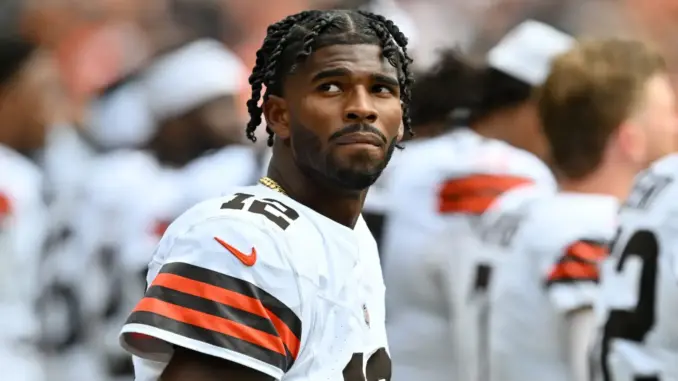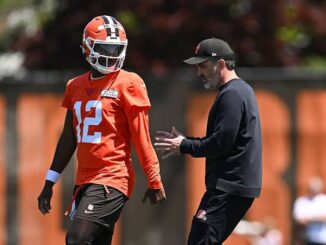
Skip Bayless intensified his criticism of the Cleveland Browns’ handling of rookie quarterback Shedeur Sanders, urging the team to consider trading the young passer. Bayless argues Sanders is being sidelined unfairly and that a change of scenery could unlock his potential.
Bayless’s comments follow months of debate over the Browns’ quarterback room after the team used draft capital to select both Sanders and Dillon Gabriel. Sanders has yet to take a regular-season snap, and his absence from meaningful reps has fed speculation that coaching preferences, rather than performance, determine his role. The situation has become a talking point among pundits and fans alike.
Supporters of Sanders point to his preseason work and college resume as evidence he deserves an opportunity to prove himself, whether in Cleveland or elsewhere. Critics counter that the Browns’ staff know their roster best and that rushing a rookie into live action could be counterproductive. The tension highlights a recurring issue in the NFL: when to develop talent internally versus moving assets to address immediate needs.
Bayless has suggested more drastic remedies, including trade routes that would place Sanders on a team better positioned to start a rookie quarterback. That framing turns a player-development dispute into front-office theatre, with potential ripple effects on roster planning and draft evaluation. For the Browns, the calculus is complex: balancing present competitiveness with long-term evaluation of a recent draft pick.
Skip Bayless Wants Cleveland Browns to Trade Rookie Quarterback Shedeur Sanders
If Bayless had his way, Sanders would find himself traded by the team that drafted the quarterback. This can be seen in a video shared by The Arena: Gridiron on X.
“I hate what’s going on with Shedeur.”
The Arena Gridiron Crew wonders why Kevin Stefanski won’t just play Shedeur Sanders. pic.twitter.com/7Pl9sB3uDt
— The Arena: Gridiron (@ArenaGridiron) October 29, 2025
Public pressure from media figures can influence organisational decisions, but teams often prioritise internal assessments over external narratives. The team’s coaching staff has defended its choice to manage Sanders’ exposure cautiously, while ownership and the front office weigh broader strategic priorities as the season unfolds. Fans remain divided over whether patience or decisive action is the correct path.
The Sanders saga underscores the fraught nature of quarterback development in the modern NFL. Until the Cleveland alters its course, debate will continue about whether keeping Sanders on the bench helps or harms both player and franchise.


Be the first to comment